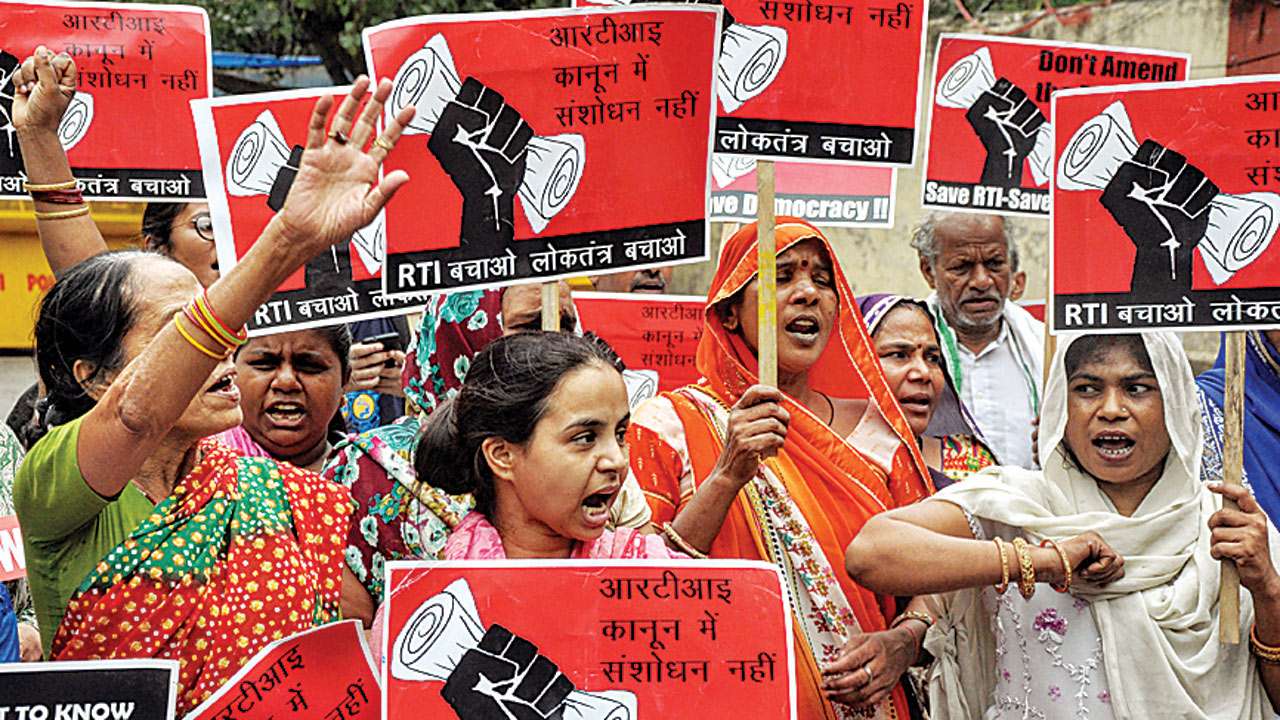
Owing to some deft back-channel diplomacy, the BJP-led NDA government, in a major setback to the opposition parties, managed to pass the controversial RTI (Amendment) Bill, 2019 in the Rajya Sabha with a voice vote on Thursday.
Till Wednesday, the opposition was upbeat that it will be able to force the government's hand to send the bill to a Parliament select committee and crease out the anomalies. Even the government had stopped short of tabling the bill in the upper House when it found itself lacking in numbers as a failed legislation would have brought embarrassment and bad publicity.
However, the situation was turned around in under 24 hours as reportedly, Prime Minister Narendra Modi and union Home minister Amit Shah managed to round up the numbers in their favour after speaking to the top leaders of some of the fence-sitters like BJD and TRS.
According to sources, PM Modi spoke to Odisha chief minister and BJD chief, Naveen Patnaik, while Shah telephoned TRS supremo and Telangana chief minister K Chandrasekhar Rao to back the bill. Till Wednesday, both these parties were against the bill, asserting that it dilutes the RTI Act. However, on Thursday, they sang a different tune.
"We will tell the government about our concerns and if we get satisfactory answers, we will think about it,"' said Prasanna Acharya of the BJD, indicating support for the bill.
Jagan Mohan Reddy's YSR Congress, too, fell in line. As a result, the BJP-led NDA government managed to muster far more than the required 118 members to get the bill through without any hiccups.
Thereafter, recorded voting took place on the motion to send the bill to a Select Committee, but it was defeated by 117 members voting against and only 75 members in its favour. Unable to muster enough numbers, the Opposition parties simply walked out of the House. Despite having four more amendments to send the bill to the select committee, deputy chairman had to negate all of them as there were no members present to move or press for voting.
Opposition parties, mainly Congress and Trinamool Congress tried to put up a fight to highlight the anomalies in the bill. Evoking sharp reaction from the treasury benches, the opposition demanded that the bill be referred to a select committee.
They argued that henceforth, the Act should be renamed as "No Right to Information Act" as the amendments will concentrate all the powers in the hands of the Central government to keep only pliant information commissioners.
Additionally, authorising the Central government to decide the term and pay scale of RTI commissioners will take away their independence and honest officials will stop disclosing sensitive information if their job and salaries are at stake.